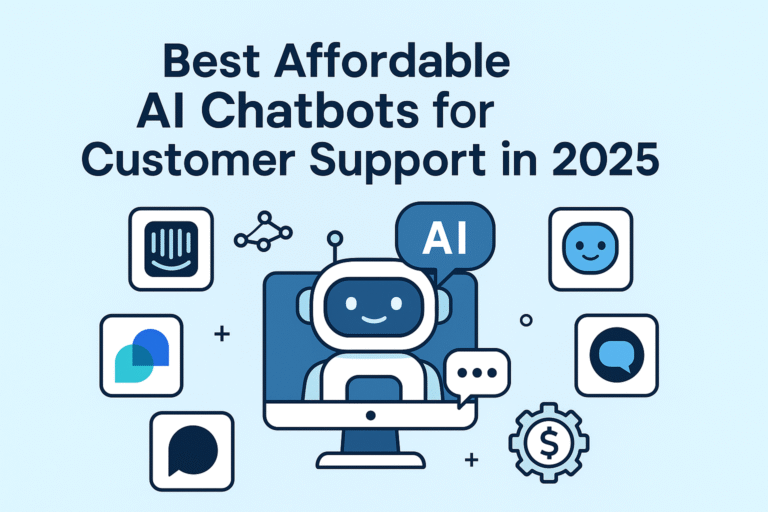When running a small business, having reliable accounting software can save time, reduce errors, and help manage finances more efficiently. In this article, we’ll explore the best accounting software options for small businesses, focusing on ease of use, features, pricing, and customer support.
1. QuickBooks Online
Overview:
QuickBooks Online is one of the most popular accounting software solutions for small businesses. It’s known for its user-friendly interface and comprehensive features, including invoicing, expense tracking, payroll, and tax preparation.
Key Features:
- Automatic bank feeds
- Customizable invoices
- Integration with third-party apps
- Cloud-based access
- Mobile app availability
Pros:
- Easy to use, even for non-accountants
- Wide range of features suitable for various business needs
- Strong customer support
Cons:
- Monthly subscription fees can add up
- Advanced features may require higher-priced plans
Pricing:
Starting at $25 per month.
2. FreshBooks
Overview:
FreshBooks is an excellent choice for small businesses, especially those that focus on invoicing and time tracking. It’s a cloud-based platform, making it accessible from anywhere, with a strong emphasis on ease of use.
Key Features:
- Time tracking and billing
- Customizable invoices
- Expense management
- Automated payment reminders
- Integration with numerous business apps
Pros:
- User-friendly with a clean interface
- Great for service-based businesses
- Strong customer support
Cons:
- Limited features compared to competitors
- Higher costs for more clients
Pricing:
Starting at $17 per month.
3. Xero
Overview:
Xero is a cloud-based accounting software designed for small businesses. It offers robust features and integration capabilities, making it suitable for businesses with more complex accounting needs.
Key Features:
- Bank reconciliation
- Online invoicing
- Inventory management
- Financial reporting
- Multi-currency support
Pros:
- Unlimited users on all plans
- Strong integration with over 800 apps
- Advanced features like inventory management
Cons:
- Learning curve for beginners
- No built-in payroll in the U.S.
Pricing:
Starting at $13 per month.
4. Wave
Overview:
Wave is a free accounting software ideal for freelancers, startups, and small businesses. It offers essential accounting features without the cost, though it does have paid add-ons for additional functionality.
Key Features:
- Invoicing and billing
- Expense tracking
- Receipt scanning
- Financial reporting
- Integration with payment processing
Pros:
- Free to use with no hidden fees
- Simple and easy to navigate
- Great for small businesses with basic needs
Cons:
- Limited features compared to paid options
- Customer support primarily through email
Pricing:
Free, with optional paid add-ons for payroll and payment processing.
5. Zoho Books
Overview:
Zoho Books is part of the Zoho suite of business apps. It’s a robust accounting software that offers strong automation features, making it ideal for small businesses that want to streamline their accounting processes.
Key Features:
- Automated workflows
- Expense tracking
- Time tracking and billing
- Inventory management
- Multi-currency handling
Pros:
- Affordable pricing with rich features
- Strong automation capabilities
- Integration with other Zoho apps
Cons:
- Limited third-party app integration
- No payroll integration for U.S. users
Pricing:
Starting at $12 per month.
How to Choose the Best Accounting Software for Your Small Business
When selecting accounting software, consider the following factors:
- Business Needs: Identify the specific accounting tasks your business requires. For example, if you need inventory management, Xero might be a better choice than Wave.
- Budget: Determine how much you are willing to spend. Free options like Wave are great for businesses on a tight budget, while QuickBooks Online offers more features at a higher cost.
- Ease of Use: If you’re not familiar with accounting, choose software with a user-friendly interface, like FreshBooks.
- Integration: Consider software that integrates with other tools you use, such as CRM systems, payment processors, and e-commerce platforms.
- Scalability: Choose software that can grow with your business. If you plan to expand, ensure the software can handle more clients, employees, and transactions.
Conclusion
Choosing the best accounting software for your small business is crucial for managing finances efficiently. Whether you’re looking for a free option like Wave or a more comprehensive solution like QuickBooks Online, this guide provides a starting point to help you make an informed decision.
For more personalized recommendations, consider your business’s specific needs and budget to find the software that best fits your requirements.








